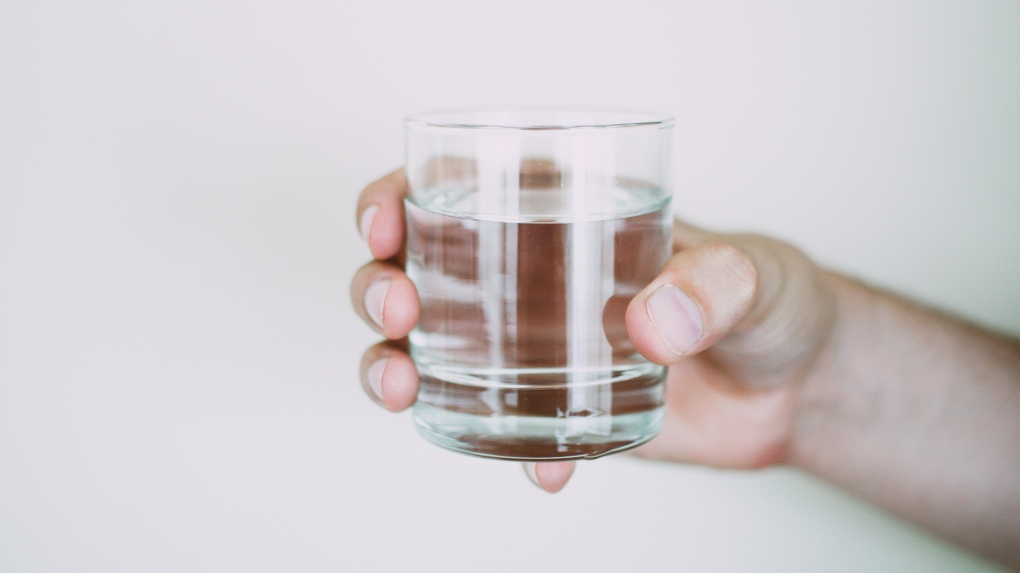You may have heard the oft-repeated advice to drink eight glasses of water a day – but according to a new study, there’s no easy way to pinpoint how much water you need to drink regularly.
Researchers looked at the water intake and patterns of more than 5,000 people across 26 countries and found that how much water our bodies actually require depends on a myriad of factors, including environment, health and age.
And according to the study, those with less ability to grab a glass of water on a whim may be the ones who need it the most.
"The science has never supported the old eight glasses thing as an appropriate guideline, if only because it confused total water turnover with water from beverages and a lot of your water comes from the food you eat," Dale Schoeller, a University of Wisconsin-Madison emeritus professor of nutritional sciences and co-author of the study, said in a press release.
"But this work is the best we've done so far to measure how much water people actually consume on a daily basis – the turnover of water into and out of the body – and the major factors that drive water turnover.”
Water turnover refers to how much water our bodies use in a day, which indicates how much water we need to be consuming daily through food and drink in order to replace it. But it’s not something that is static across all people, Schoeller said.
This new study, published last week in the peer-reviewed journal Science, found that the daily average of optimal water consumption ranges between one litre per day and six litres per day depending on the person, which makes pinpointing a guideline difficult.
"There are outliers, too, that are turning over as much as 10 liters a day," Schoeller said. "The variation means pointing to one average doesn't tell you much. The database we've put together shows us the big things that correlate with differences in water turnover.”
In order to get a broad picture of water turnover, more than 90 researchers worked together to collect data on 5,600 people ranging from eight days to 96 years old. They measured water turnover by having participants drink an amount of water that contained specific, trackable hydrogen and oxygen isotopes – no different from any other drinkable water, but distinguishable on the atomic level within a sample of urine.
"If you measure the rate a person is eliminating those stable isotopes through their urine over the course of a week, the hydrogen isotope can tell you how much water they're replacing and the elimination of the oxygen isotope can tell us how many calories they are burning," Schoeller explained.
Researchers then compared the water turnover with different external factors to see what patterns emerged.
They found that age, body size, physical activity level, athletic status and pregnancy all appeared to have measurable impacts on how much water a person goes through on a daily basis, with physical activity levels making up the largest difference in water turnover.
For instance, athletes or labourers who are exerting themselves physically are going to be sweating out more fluids and thus needing to replace those fluids more quickly. The study found that athletes require around a litre more of water daily than non-athletes.
Assuming all other factors were the same, there were still slight differences between the water turnover of men and women, according to the study. The average 20-year-old man would take in and lose around 3.2 litres daily, while a woman of the same age and physical activity level, living in the same location, would go through around 2.7 litres, researchers estimated.
But factors unrelated to the physical body also appeared to play a role, with researchers finding that water turnover rates seemed to also be connected to socioeconomic status and environmental factors such as latitude, altitude, temperature and humidity.
This new study found that countries that ranked lower on a United Nations scale of human development – HDI, measured by life expectancy, years of schooling, and general income levels – had a higher water turnover level than countries with a high HDI.
"That's representing the combination of several factors," Schoeller said. "Those people in low-HDI countries are more likely to live in areas with higher average temperatures, more likely to be performing physical labour, and less likely to be inside in a climate-controlled building during the day. That, plus being less likely to have access to a sip of clean water whenever they need it, makes their water turnover higher.”
In many regions of the world, clean water can’t be accessed through the turn of a tap. Globally, around one in three people do not have access to safe drinking water, according to a 2019 statement from the World Health Organization.
Yosuke Yamada, section head of the National Institute of Biomedical Innovation, Health and Nutrition in Japan and lead author of the study, said in the release that it is increasingly important to identify global water needs.
"Determining how much water humans consume is of increasing importance because of population growth and growing climate change,” Yamada said. "Because water turnover is related to other important indicators of health, like physical activity and body fat [percentage], it has potential as a biomarker for metabolic health.”







































